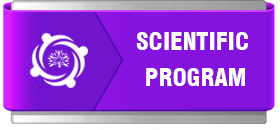
Rodney B Dieser
University of Northern Iowa, USA
Title: Integrating flow theory and the serious leisure perspective into mental health counseling: A case report
Biography
Biography: Rodney B Dieser
Abstract
Statement of Problem: Although different counseling models have acknowledged the role of leisure in the counseling process (e.g. acceptance and commitment therapy, cognitive behavioral activation, developmental counseling and therapy, existential therapy, reality therapy) leisure is largely an unknown and superficial concept in the mental health counseling literature. Within positive psychology, Seligman (2002, 2011) gives some voice to leisure within authentic happiness and well-being theory, but this area of positive psychology is still largely underdeveloped, especially as it relates to mental health counseling services.
Purpose and Methodology: The purpose of this study is to define the serious leisure perspective and flow theory and to describe how these two theories of leisure can be integrated and used when working with clients who experience depression, and other types of mental health disorders. Through a case study of a middle-aged man who had stage four renal disease, severe depression, and mild anxiety, this paper will explain how the serious leisure perspective (SLP), which propel the client to experience flow and meaning, was used as a treatment intervention. In order to improve methodological rigor, this case report will follow the CARE (CAse REport) guidelines that are a consensus-based clinical case reporting framework from the medical profession.
Practical and Research Implications: Four broad-based pragmatic ideas regarding how flow theory and the SLP can be integrated into the counseling process include mental health counselors (1) understanding the SLP, flow (enjoyment), and hedonistic pleasure; (2) becoming aware of various assessment instruments that measure flow and serious leisure; (3) using the provision characteristics of entering flow into the counseling process; and (4) empowering clients to becoming community change agents through serious leisure pursuit, resulting in flow experiences.

